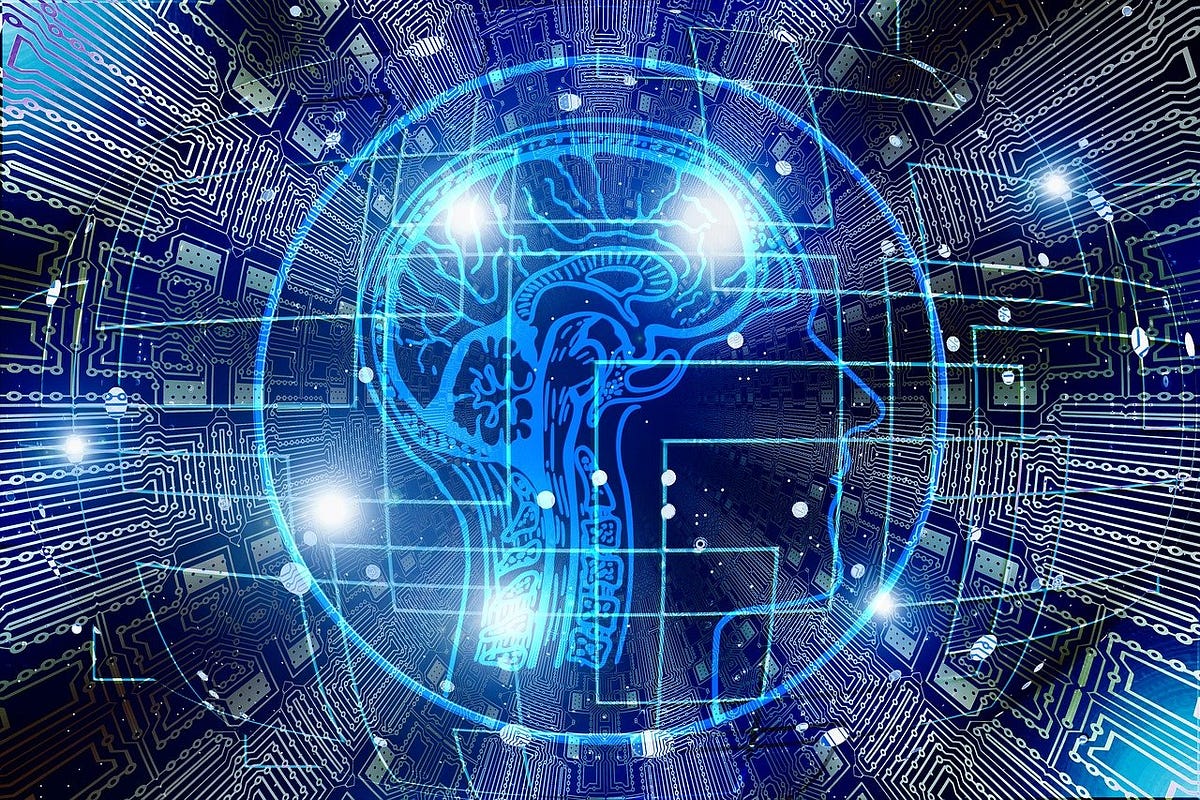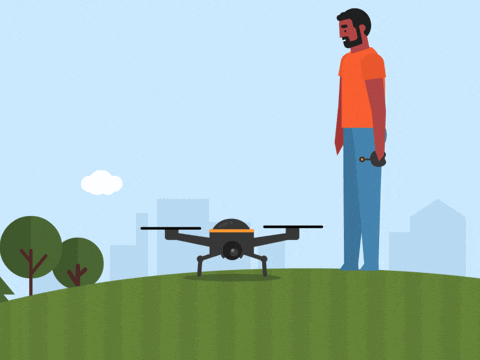- TECHSWU
- Posts
- TECHSWU #44
TECHSWU #44



The Qudi Mask 2 is a unique face mask that allows users to express themselves through bright LED animations. The mask features customizable face patterns and built-in animations that react dynamically to the wearer's movements and emotions.
With an in-app emoticon creator, users can personalize the mask's face patterns, including eyes and mouths, and choose from a variety of color options. The mask also has an Emotional Mode that reacts to speech, blinks, and mimics head movements, allowing wearers to engage with others in a fun and expressive way.
In Dynamic Mode, the mask adjusts its expressions based on the wearer's behavior and environment, freeing them from controlling the mask. Overall, the Qudi Mask 2 goes beyond protection and adds flair and color to every interaction.


Mark Zuckerberg, the CEO of Meta, has found newfound popularity in Silicon Valley thanks to his company's open-source artificial intelligence (AI) system. While other tech giants like Google, OpenAI, and Microsoft have kept their AI models closed, Zuckerberg made Meta's AI code open-source, allowing anyone to freely access, modify, and reuse it.
This move has resonated with developers and technologists who value the hacker code of making technology openly available. Many see Zuckerberg as the champion of the open-source ethos, protecting it from the control of big companies.
By embracing the open-source model for AI, Zuckerberg has positioned himself at one end of the debate over the accessibility and potential dangers of this powerful technology.


Nothing, the tech company founded by Carl Pei, has released its first limited edition smartphone, the Phone (2a) Special Edition. The device features a white colorway with accents of yellow, blue, and red, and is called 'Bauhaus'.
It is essentially the same as the regular Phone (2a) in terms of hardware and software, but the special edition is expected to be popular among fans. The Phone (2a) Special Edition is available in a limited quantity and is priced at £349/€379.
It can be purchased online or in-person at the Nothing Store in London. With the regular Phone (2a) selling over 100,000 units within hours of its release, it is expected that the special edition will sell out quickly.
The design of the special edition device is inspired by past design heroes and aims to elevate a functional device into a piece of art.

According to a new study from Northwestern Medicine, personal trainers are more effective than technology when it comes to achieving weight loss goals. The study evaluated 400 overweight or obese adults over a period of 12 months and divided them into three groups: one that used a wireless fitness feedback system alone, one that used the system with human coaching, and one that used human coaches alone.
The results showed that those who used the technology alone were less likely to achieve significant weight loss compared to those who had the support of a human coach. The author of the study, Bonnie Spring, emphasized that while technology is developing rapidly, it is not yet at a level where it can replace human coaches in helping people achieve their goals.
Therefore, personal trainers are still valuable in providing motivation and accountability.

The proliferation of electric bicycles in New York City has sparked a heated debate about the safety and convenience of these vehicles. For delivery workers like Elijah Orlandi, e-bikes offer a quick and efficient way to make deliveries for companies like Grubhub.
However, some New Yorkers argue that e-bikes pose a danger to pedestrians and create chaos on the streets. Critics claim that e-bike riders often ride too fast, weave in and out of traffic, and ride on sidewalks, putting pedestrians at risk.
Others, like Orlandi, argue that they are simply trying to do their jobs efficiently and that they are under pressure from delivery apps to make quick drop-offs. With the popularity of home delivery remaining high even after the pandemic, the issue of e-bikes on New York City streets is unlikely to go away soon.


Tech layoffs have "right-sized" the industry and will contribute to strong earnings, according to Gus Scacco, CEO and CIO of Hudson Valley Investment Advisors. Scacco believes that the tech industry, along with other sectors such as retail and trucking, have gone through a process of self-correction in recent years, resulting in improved margins and increased resilience.
He argues that companies have become more efficient in their use of capital and better equipped to weather economic downturns. Scacco also expects interest rates to decrease over the next six to 12 months, although he does not anticipate any immediate rate cuts.
He suggests that retail investors with bond investments should consider a barbell strategy, combining short-term higher rate investments with longer-term, higher-rated paper to mitigate reinvestment risk.

Researchers at Baylor College of Medicine and the University of Arizona have conducted a study that uses wearable technology to improve surgeons' posture during long surgical procedures. The study found that wearable tech is a feasible and reproducible approach to providing surgeons with objective feedback on their posture, allowing them to correct poor postures promptly.
The researchers equipped ten neurosurgeons with sensors on their head and upper back to measure the time spent in various static postures during surgeries. They found that taller surgeons tended to spend more time in flexed and extended positions during cranial surgeries, suggesting that personalized biofeedback could help surgeons adjust their posture based on their height and the specific surgical procedure.
This new technology has the potential to prevent musculoskeletal issues in surgeons and improve their overall health, performance, and career longevity.

The article discusses the concept of multimodal AI, which refers to AI systems that integrate data from a variety of sources, including text, images, video, and sound. The author argues that in order for AI to reach its full potential, it needs to be able to learn in the same way that humans do, by processing information from multiple senses and stimuli.
Multimodal learning allows AI systems to understand context, make more accurate decisions, and provide more nuanced and insightful responses. The article highlights several real-world applications of multimodal AI, including customer service chatbots, personalized voice assistants, autonomous navigation, and immersive virtual and augmented reality experiences.
The author also mentions several startups that are making significant advances in the field of multimodal AI. Overall, the article emphasizes the importance of incorporating multimodal learning into AI systems to enhance their capabilities and transform various industries.

Cloud computing has transformed the way businesses operate, offering flexibility, scalability, and efficiency. As technology continues to advance, the potential of cloud computing continues to expand.
Experts at Google Cloud, such as those at DoiT, a Google Cloud Partner, predict several major developments shaping the future of cloud computing. One key trend is the integration of artificial intelligence (AI) and machine learning (ML) into cloud services, with AI and ML tools becoming more embedded and adopted across various industries.
Another trend is the rise of edge computing, which brings computation and storage closer to where data is created, improving real-time data processing and performance. Hybrid and multi-cloud strategies are also expected to gain popularity, allowing businesses to take advantage of different cloud environments for flexibility and resilience.
Enhanced safety and compliance measures will further secure sensitive data and ensure regulatory requirements are met. In conclusion, the future of cloud computing looks promising, offering opportunities for innovation, operational efficiencies, and competitiveness across sectors.

Artificial Intelligence, or AI, is no longer limited to large industrial machines but has now become a part of our everyday tech gadgets. From smartphones to smartwatches and even smart home devices, AI is everywhere.
The Consumer Electronics Show (CES) 2024 showcased some incredible gadgets that truly reflect the futuristic nature of AI technology.
One of the areas where AI has made a significant impact is in voice assistants.
Gone are the days of manually operating our devices; now we can simply command them through voice. Whether it's asking our smart speakers to play our favorite songs or asking our smartphones to set reminders, voice assistants have become an essential part of our lives.
But AI is not limited to voice assistants alone. It extends to other areas, such as improving healthcare with wearable devices that monitor our vitals and provide valuable insights.
Additionally, AI is taking over our homes through smart thermostats, security systems, and even AI-powered fridges that can reorder groceries.
Overall, the proliferation of AI gadgets is making our everyday tech smarter and cooler.
It's exciting to see how AI technology is transforming the way we interact with our devices and making our lives more convenient.

Colorado police departments are planning to use drones as first responders to 911 calls. At least 20 agencies in Colorado already use drones for tasks such as searching for missing people, tracking fleeing suspects, mapping crime scenes, and providing surveillance during SWAT operations.
The drones would be dispatched to calls that require less urgency, allowing officers to prioritize more pressing calls. The technology could also provide useful information from the location of an incident before officers are deployed.
However, concerns have been raised about the impact of widespread drone usage on personal freedoms, such as freedom of speech and the right to protest. The Denver Police Department (DPD) is looking to expand its drone program using a grant from the Denver Police Foundation, with the long-term goal of drones acting as first responders.
The DPD hopes to create a public-facing dashboard to track drone flights and ease concerns about privacy violations.

/smstreet/media/media_files/ksDqZHoOmqHGHcgrK3pG.jpg)
E-bikes have become a popular mode of transportation and a fun way to relive childhood biking experiences. The global electric bike market is predicted to reach a value of USD 109.
53 billion by 2030 with a CAGR of 10.21%.
In this industry, there are a few e-bike manufacturers that are leading the way in electric mobility.
1.
DYNEM is the world's largest integrated electric cycle gigafactory, producing over 560,000 e-cycles annually. They offer a comprehensive range of e-bikes with powerful motors and intuitive control systems.
2. GIANT is a global brand known for creating better bikes and improving the cycling experience.
Their Road E+ Pro model features a powerful motor, high-end components, and hydraulic brakes.
3.
EMOTORADE is an Indian company that exports premium e-bikes and cycling equipment to over 18 countries. Their e-bikes are known for their cutting-edge technology and sleek design.
4. BOSCH is recognized for its drive systems and reliability.
Their e-bikes empower riders to conquer any terrain with ease.
5.
COWBOY specializes in designing sleek, urban e-bikes with integrated technology features. Their bikes are lightweight, minimalist, and popular among urban commuters.
These e-bike manufacturers are reshaping the future of electric mobility with their innovative designs and state-of-the-art technology.
